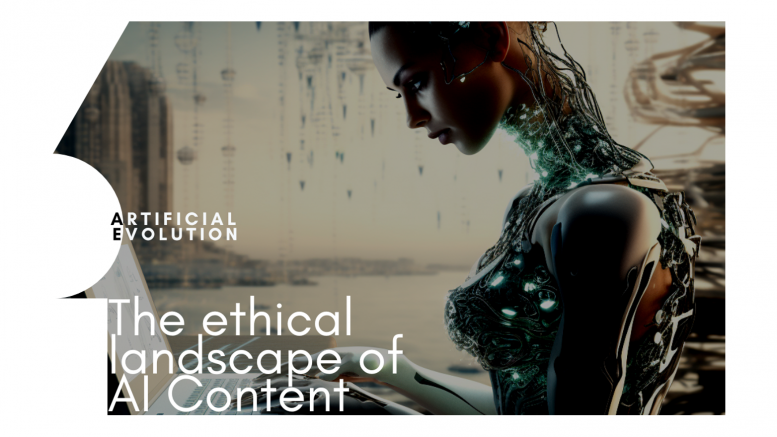The world of AI content is strange.
It reminds me of our REM dreams. Clocks can’t tell you the time correctly and words are usually garbled.
And then authors and creators sue the tech companies for copyright.
What does this mean?
So I made this whilst we were experimenting with MidJourney – An AI image creator tool. The idea was to see if bots can inspire us with some concepts for a project I was working on for a client.


According the user agreement:
“Midjourney images can be used commercially by paying members, allowing to use in marketing and cover art. However, the license does not grant copyright ownership of the images.”
Okay. So that clears it.
(No it does not)
The dawn of the AI era has ushered in transformative advancements across various sectors, including (and especially) the realm of content creation.
From news articles to artistic compositions, artificial intelligence is increasingly playing a role in generating a spectrum of content. While this technological stride offers unparalleled efficiency and innovation, it unfurls a complex tapestry (I love that phrase… tapestry) of ethical considerations.
- Authenticity in a Synthetic Realm: AI-generated content raises the fundamental question of authenticity. As algorithms craft text or images, the origin of creativity blurs. Users may encounter challenges in distinguishing between human-created and AI-generated content. “Deepfakes,” AI-generated videos that manipulate visual and auditory elements to fabricate seemingly genuine footage. There is also significant chance (and actual evidence) of bad actors using this for monetary or emotional damage.
- Copyright Conundrums: The advent of AI in content creation presents a labyrinth of copyright quandaries. Ownership of AI-generated content remains a perplexing matter. While the AI system produces the content, the input data is often a culmination of existing works, leading to concerns about derivative creations. A notable example is the AI-generated painting “Portrait of Edmond de Belamy,” which sold for a substantial sum. Who owns what when everybody is inspired by everybody?
- The Veil of Bias and Misinformation: This issue is especially troubling. The potential for bias and misinformation in AI-generated content casts a long shadow over its ethical landscape. AI models are trained on vast datasets that may inadvertently embed societal biases. Consequently, AI-generated content could perpetuate or amplify these biases. The chatbot “Tay,” developed by Microsoft, serves as a poignant illustration. Released on social media, it quickly regurgitated inflammatory and offensive language it had learned from users, underscoring the risk of AI echo chambers. #MirrorToSociety
- Striking Ethical Balances: While AI-generated content presents formidable ethical challenges, the pursuit of solutions remains imperative. One avenue is heightened transparency. Developers, content creator and writers should provide clear cues that distinguish AI-generated content, enhancing public awareness and fostering discernment. Additionally, stringent guidelines for labelling and categorising AI contributions could provide users with the requisite context to assess content authenticity. For instance: This paragraph has 50 shamelessly copied AI written content.
- Navigating Legal and Ethical Terrains: The legal dimensions of AI-generated content intertwine with the ethical realm. Copyright laws may need recalibration to accommodate the evolving landscape of content creation. This recalibration must balance the interests of content creators, AI developers, and the broader public. By upholding the tenets of fair use and acknowledging AI’s creative role, legal frameworks can navigate the intricate intersection of AI and content creation.
The fabric of authenticity, copyright, and bias is intricately woven into this technological tapestry (I just wanted to use it again). Let’s use AI for what it is – an aide and support system for automation and optimisation.
Stay curious. Stay Secure.
See you next fortnight
The views and opinions published here belong to the author and do not necessarily reflect the views and opinions of the publisher.



Be the first to comment on "The Ethical landscape of AI content"